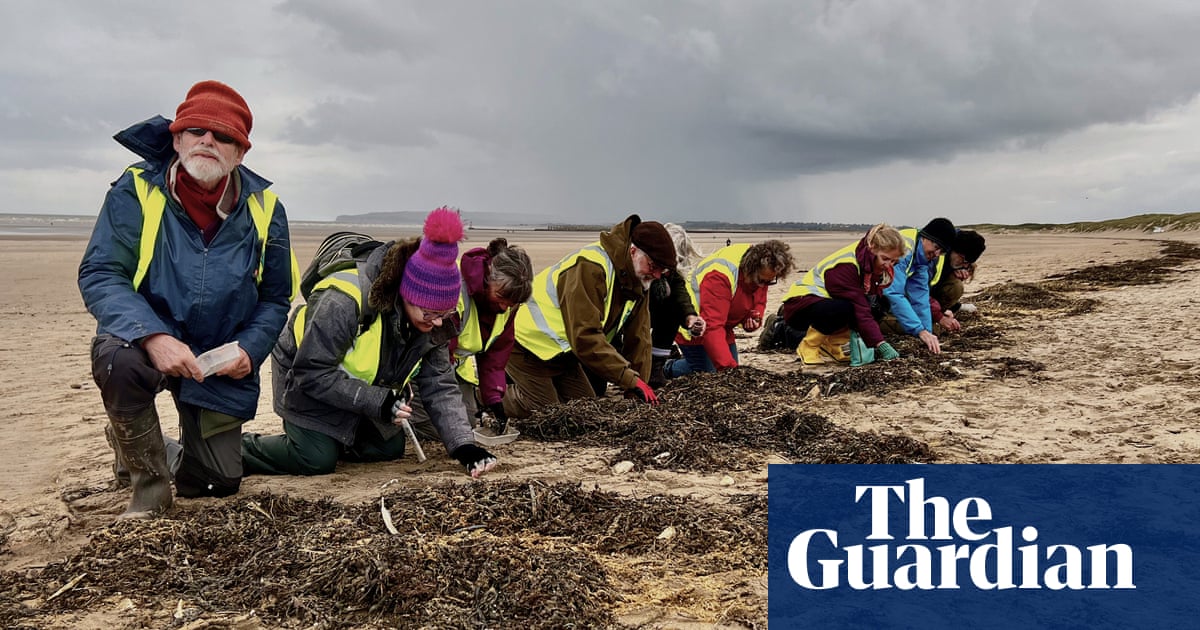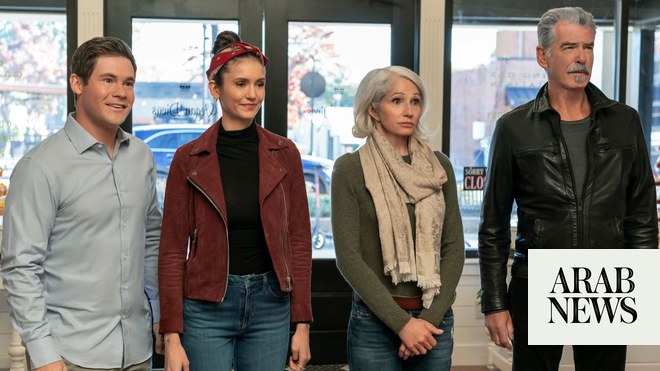
Choreographer Drew McOnie talks a-mile-a-minute. His cogs are constantly whirring, not only thinking about the steps he’s making, but also how to nurture his dancers, how to create the right environment in the studio, how to be. He’s what Canadians call a keener, a massively hard-working enthusiast, never too cool to try.
McOnie’s first public exposure was on the UK version of talent show So You Think You Can Dance in 2010, where he was voted off for essentially being a bit too clever with his routines (there was one to Blondie’s Call Me involving a telephone, if I remember correctly). He danced the same way he talks – at speed – but choreography was his real passion and his career took off fast, piling up credits including Bugsy Malone, Lin-Manuel Miranda’s In the Heights, The Lorax and the multi-award-winning Jesus Christ Superstar at Regent’s Park Open Air theatre. His dance full of fizzing energy, wit and invention, he made Jekyll and Hyde for his own company at the Old Vic and moved up a notch to directing musicals Strictly Ballroom and On the Town.
Looking unstoppable, at 32, he was asked to direct King Kong on Broadway, a huge gig involving a 20ft-tall animatronic gorilla. The show crashed with stinking reviews, which must have been devastating. “I can’t say there haven’t been times in my career where I’ve been utterly destroyed by things people have said,” he says. “But success, I believe, is made out of the time you don’t waste. Success isn’t how many awards you win, or how many five-star reviews you get. Success is built on how quickly you bounce back, how you take the lessons. Everything in between is just wounded ego.”
Now 35, looking boyishly fresh, McOnie has certainly bounced back. Post-lockdown, he’s choreographing a new Carousel for Regent’s Park, making his first full-length ballet, Merlin, for Northern Ballet and prepping to shoot the Take That film Greatest Days next year. As he sees it, he has no choice but to plough on. “The way that I’m wired, my DNA, I don’t have a choice. There is no Plan B for me, this is who I am, it’s what I do, it’s how I understand the world.”
Breathless when he dials in over Zoom, McOnie has just dashed out of the rehearsal room, halfway through the creation of Carousel. The 1945 Rodgers and Hammerstein musical is best known for the anthem You’ll Never Walk Alone, but also for its depiction of domestic violence, the “he hit me and it felt like a kiss” problem, when fairground worker Billy Bigelow slaps not only his wife, but also his daughter, and yet remains the hero of the show. Director Tim Sheader is not shying away from the difficulty the musical presents. Where some productions have sought to explain and justify Bigelow’s actions, or minimise the violence, covering it up “with petticoats and hampers and gingham dresses and the dizziness of it all”, Sheader is trying to play more truthfully the way somebody can fall in love with their abuser. “We’re trying to deliver the hope and heart and romance but not apologise for our character’s failings,” says McOnie. “We’re realising the culture that leads to environments in which bad decisions are made.”
There have been frank discussions in the rehearsal studio on gender inequality and violence. “You put that on the poster, it’s maybe a hard ticket to sell,” says McOnie, “but it’s an important time to be exploring this.” They are taking a contemporary perspective. “Carousel’s written for you to empathise with Billy Bigelow and yet Billy Bigelow is the abuser – that’s not the story we’re interested in telling. It’s much more trying to understand the journey of the women in the show.”
The musical’s original choreography was by Agnes de Mille and McOnie raves about her genius, the way she used ballet technique but also gesture and subtext. “You were receiving images, like rainfall, but not like charades or Give-Us-a-Clue-choreography,” he says. “You see little bits of text even though nobody’s opening their mouth, and like poetry it asks your imagination to leap and meet it in the middle.” This production moves the action from 19th-century North America to a British seaside town somewhere in the last 100 years, and the language shifts accordingly. Some of the music has been re-orchestrated to take into account the way people’s voices have lowered over the last century, and McOnie’s choreography follows suit, moving from the uplift of balletic posture to a more grounded, earthbound expression. “There’s a kind of bombast and desperation and passion and urgency, from the gut.”
He’ll be back to airbound classicism for his next piece, Merlin, which will be the first time he’s worked with a major ballet company, “a very hard party to get an invite to”, as he puts it. McOnie idolises choreographers such as Jerome Robbins and Kenneth MacMillan, “these huge storytelling entertainers, who really had the ability to thrill and shock and demand that dance is used to question society and express deeper psychological states.” He came up with Merlin because people know the name of the mythical wizard, but not his story (or various stories) – he was supposedly born of a mortal woman and a demon, from whom he inherited supernatural powers.
Unexpectedly, this soon became a very personal story for McOnie, not because he’s hiding any mystical powers, but because Merlin’s sense of otherness felt close to home. “He’s told to hide what’s different about him, and there’s something about me being gay – not that Merlin is gay, but he represents the lad at school that gets picked on for being different.” In the end, “it’s understanding that the thing that makes us different might be the very thing that gives us magic.”
There’s also a theme of alternative families. “It struck me that our central character has come from a complicated family,” says McOnie, “and wouldn’t it be exciting to use Merlin to tell a story about a relationship between an adoptive mother and her son. My husband [photographer Mark Senior] and I are at the very beginnings of working out how we can start a family, and no matter what route we go, we are bringing into the world a child who isn’t going to have what is perceived as the ‘nuclear’ family, so it’s an exploration of what family is.”
McOnie’s expanding life beyond the theatre helps him keep in perspective what happens on stage and in reviews. He’s just moved to Brighton and is loving it (“That hour on the train at the end of the day, watching the Shard disappear into the distance”). He’s definitely got some perspective on the King Kong experience. “It’s one of the things I am most proud of,” he says, because of everything he did behind the scenes to get it on the stage. He knew he was taking on a near-impossible challenge, an inherited title and a multimillion-dollar gorilla pre-programmed for a previous, flawed, Australian version. “I remember sitting in Soho House in New York with a friend and he was saying ‘This is going to absolutely screw you, mate’, and I was like, I kind of know that, but I believe in a part of this.” By the traditional rules of musical theatre, Kong collapses, he admits. “But if you went to experience a visually thrilling, emotional rollercoaster of a rock gig, the adrenaline of that show was just completely irreplaceable.”
Onwards then, to the next adrenaline hit. McOnie often gets so wired when working on a show he only sleeps a few hours a night (good practice for parenthood) but he’s not chasing those highs like he used to. “I used to think everything was about the pursuit of happiness,” he says, “but as I’ve got older I’ve realised it’s about the pursuit of balance. Especially as an artist, we have to be OK with sadness and grief. We want to be able to feel a whole range of emotions but have the mental wellbeing to let those emotions pass – you’re in an unhealthy place when you’re stuck in an emotion, which I think is also true of somebody who is hyper all the time.” The pandemic gave him a chance to address his work/life balance, although he kept busy, launching a digital dance festival, raising money for out-of-work performers and cooking up online tutorials. But there’s no doubt he’s in his element in the studio. “I’ve been catapulted back into work now,” he says, scooting off to the next rehearsal. “And I’m loving every minute of it.”
Carousel is at Regent’s Park Open Air theatre, London, 31 July to 25 September. Merlin is at Nottingham Theatre Royal, 25 September to 2 October.












